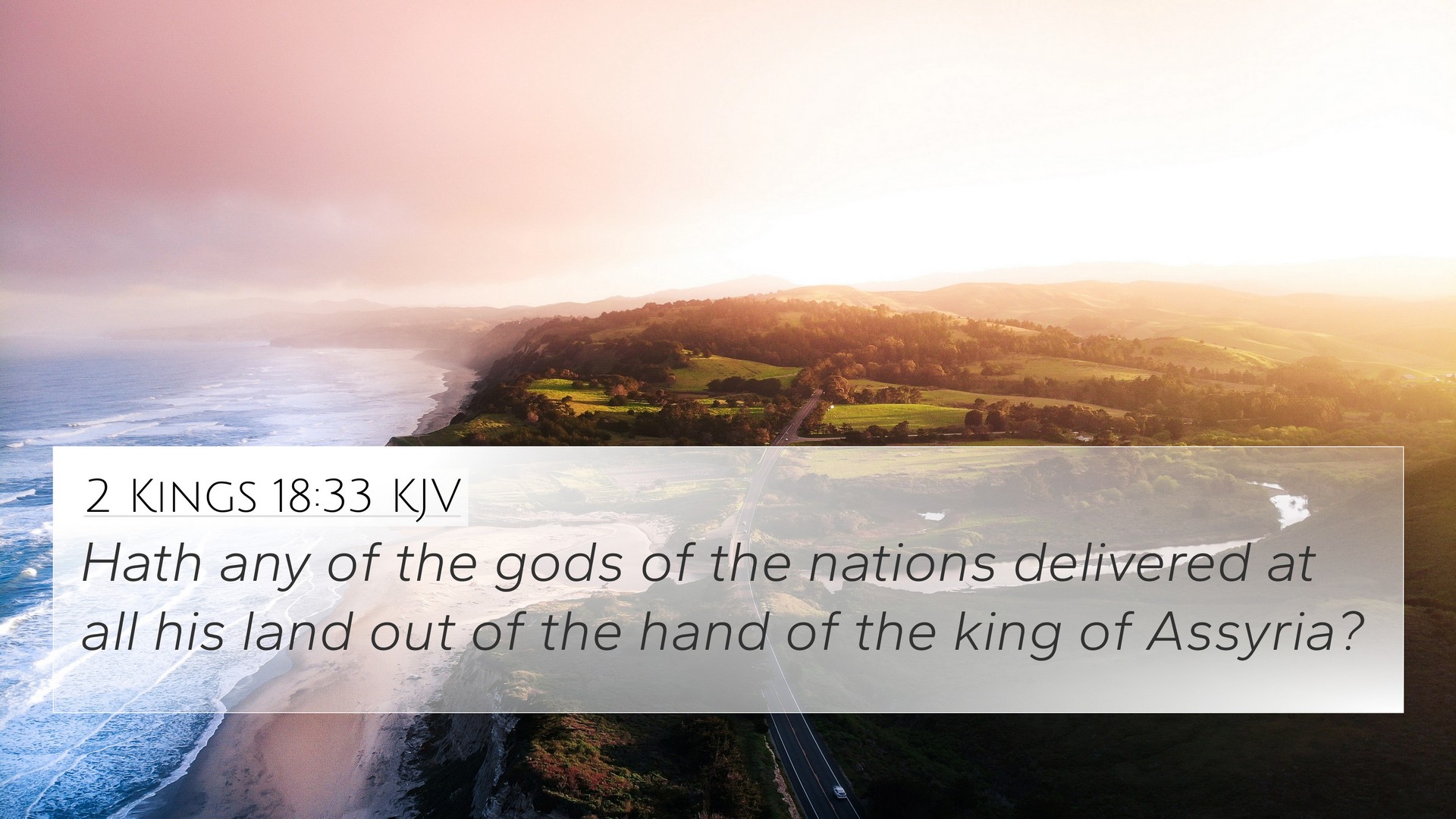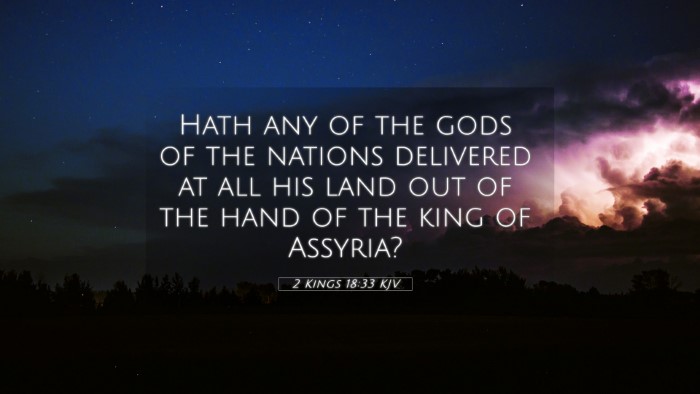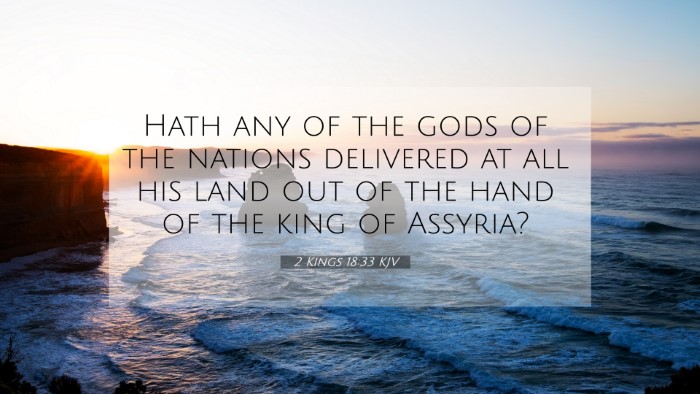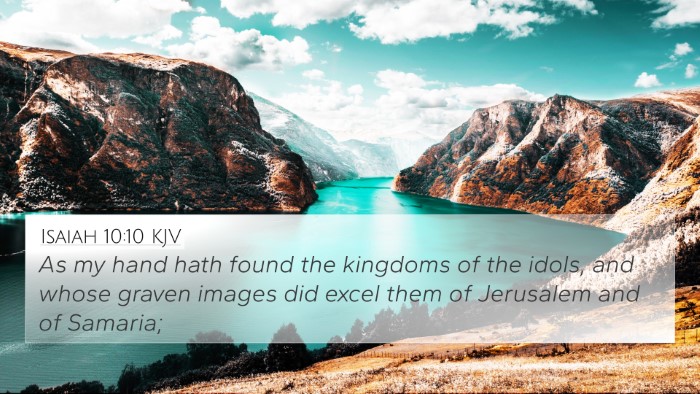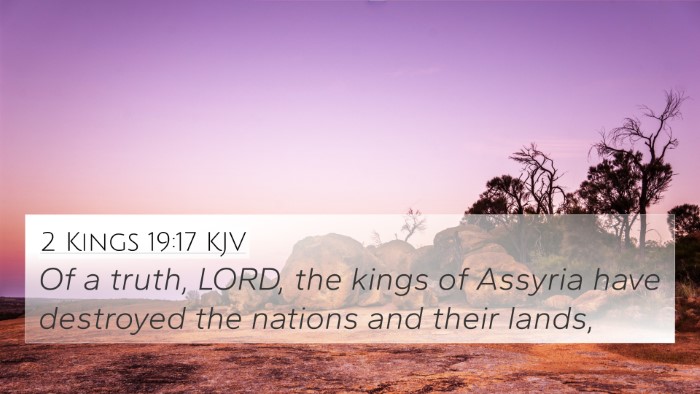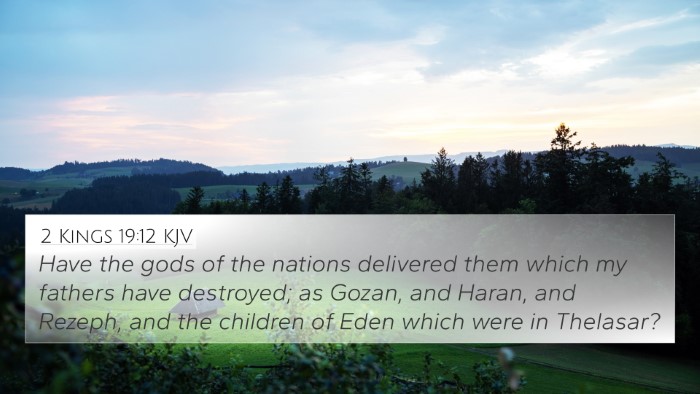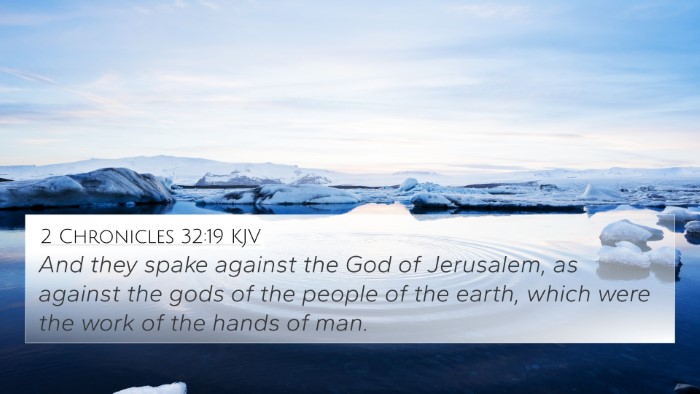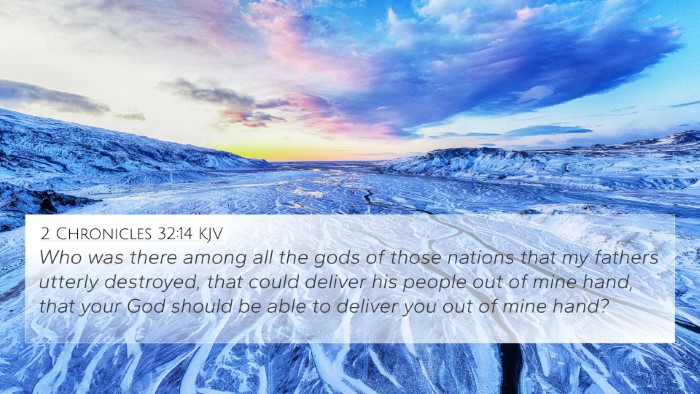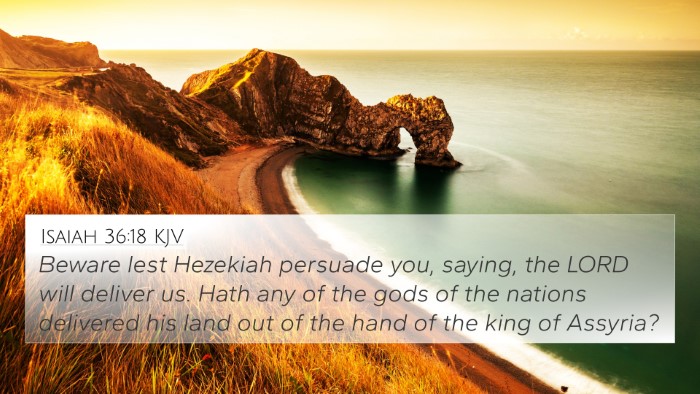Understanding 2 Kings 18:33
The verse 2 Kings 18:33 states:
"Has the god of any nation ever delivered his land from the hand of the king of Assyria? Where are the gods of Hamath and Arpad? Where are the gods of Sepharvaim? Have they rescued Samaria from my hand?"
This verse is part of a larger narrative in which the King of Assyria, Sennacherib, taunts the people of Judah and King Hezekiah in an attempt to instill fear and discourage them from resisting Assyrian conquest. The verse showcases a crucial moment in the history of Israel, emphasizing the challenge not only to the physical safety of the people but also to their faith in God.
Commentary Insights
To delve deeper into the meaning of this verse, we can draw insights from various public domain commentaries:
-
Matthew Henry:
Henry focuses on the audacity of Sennacherib, asserting that he is questioning the ability of the God of Israel to save. He highlights that Sennacherib is ignorant of God's power and that the perceived failure of other nations' gods stands as a warning against disbelief in God's sovereignty.
-
Albert Barnes:
Barnes emphasizes the arrogance involved in Sennacherib's claims. He points out the rhetorical nature of Sennacherib's remarks, aiming to undermine the people’s faith by equating their God with the false gods of other nations who could not deliver their peoples in similar crises.
-
Adam Clarke:
Clarke examines the historical context, noting that the mentioned cities and their gods were significant in the region. His analysis reveals how religious beliefs were tied to national identity and how a defeat in battle was perceived as a defeat for a nation’s gods.
Theological Implications
This verse raises significant theological questions about faith, divine sovereignty, and the nature of false idols:
-
Faith in God:
Despite Sennacherib's claims, the true God of Israel is portrayed as powerful and sovereign, capable of saving His people. This contention illustrates a major theme in Scripture: trusting in God against seemingly overwhelming odds.
-
The Nature of Idols:
Sennacherib's comparison of the gods reveals the futility of idol worship. In biblical theology, idols are mere creations of man with no power to save or act.
Cross-References
To deepen your understanding of 2 Kings 18:33, here are several related scripture references:
- Isaiah 36:18-20 - A parallel account of Sennacherib’s taunts against Jerusalem.
- 2 Chronicles 32:13-15 - Further detailing Sennacherib’s challenge to Hezekiah and the people of Judah.
- Psalm 115:3-8 - Contrasting the living God with the silence of idols.
- Isaiah 37:10-13 - A response from God through Isaiah regarding the threats made by Sennacherib.
- Exodus 15:11 - Celebrating God’s might among other ‘gods’ (idols) that cannot compare.
- Jeremiah 10:5 - A reminder of the nature of the gods made by human hands.
- Daniel 3:14-15 - Another instance where the faith against kingly threats is highlighted.
Practical Applications
This narrative offers valuable lessons for modern-day believers:
- Trust in Divine Sovereignty: Just as Hezekiah did not fully fear the Assyrian king's mighty words, believers are called to trust in God's ultimate power over any earthly authority.
- Awareness of Idolatry: Reflect on what modern 'gods' or idols might vie for one's heart's devotion, such as wealth, status, or comforts.
- Encouragement through God's Record: Recognize God’s past faithfulness as a foundation for present faith.
Conclusion
2 Kings 18:33 invites believers to consider the nature of faith in the face of adversity. Through cross-referencing with related scriptures, one gains a deeper understanding of God's character and the futility of relying on anything other than the One True God. In developing a systematic study of cross-referencing biblical texts, one can effectively uncover the interconnected meanings and overarching themes throughout Scripture.
